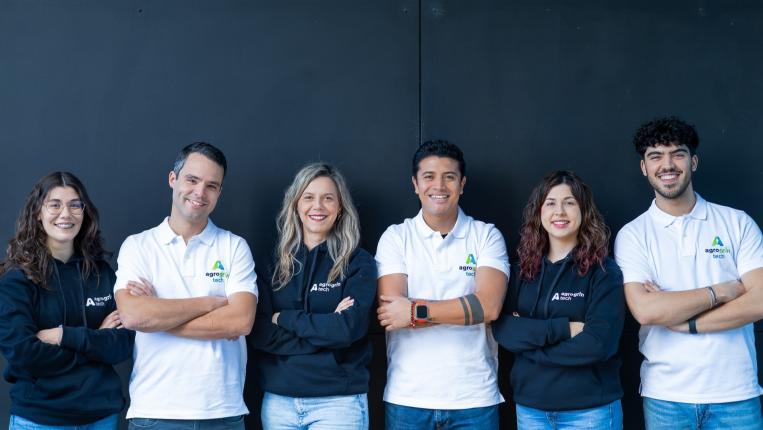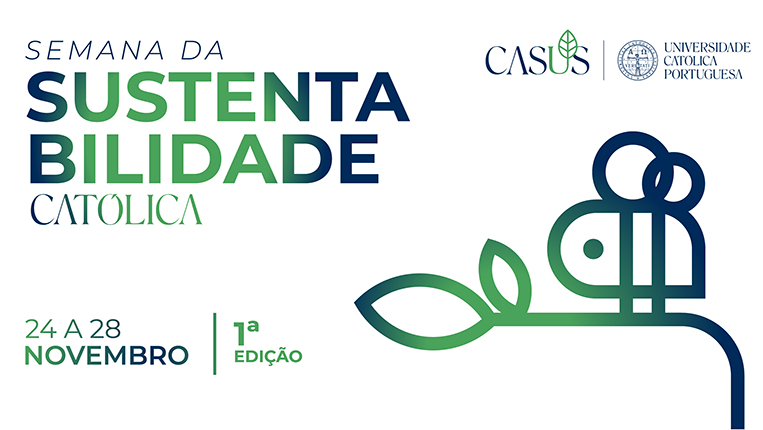Developed within the scope of Débora Campos’ PhD - currently CEO of AgroGrIN Tech (AGT) - the sustainable method for bromelain extraction created at the Centre of Biotechnology and Fine Chemistry has now been exclusively licensed to the startup. The agreement strengthens the strategic link between academia and industry, enabling the company to advance toward industrial-scale production of the enzyme.

What does the patented method consist of, and what makes it innovative?
The patented method consists of a green and highly efficient process for the precipitation and recovery of enzymes - specifically bromelain - from pineapple by-products. It is an innovative methodology because it uses mild, sustainable, and scalable conditions, allowing the production of high-purity bromelain without the use of harsh solvents. This approach represents a safer, more economical, and more environmentally responsible alternative to conventional techniques, paving the way for the sustainable separation and extraction of proteins applicable to the industrial production of natural and clean-label ingredients.
Although bromelain is currently available on the market for food and functional applications, there are still no products clearly positioned as “clean-label bromelain”. Most enzyme suppliers position it merely as a natural ingredient or plant-based enzyme, without demonstrating the production process or sustainability commitments. This gap highlights the differentiating nature of the technology developed at Universidade Católica and applied by AgroGrIN Tech, which introduces a truly green process aligned with current demands for transparency, naturality, and reduced use of additives.
By offering a bromelain that genuinely meets clean-label principles — not only because of its plant origin, but also because of the way it is produced — AGT is positioning itself within a global trend that remains underexplored in the field of proteolytic enzymes. This movement mirrors what major global players such as Novozymes and DSM-Firmenich have demonstrated in recent years: enzymes are now an essential pathway for clean-label solutions, capable of improving texture in plant-based alternatives and replacing emulsifiers, stabilisers, and other artificial additives. This evolution confirms the potential of this technology, which has always been at the forefront, anticipating international trends and aligning early on with the strategic direction of leading companies in the natural and functional ingredients sector.

How did the collaboration with AgroGrIN Tech begin?
The collaboration began within the scope of my PhD, during which the patented method was developed in co-authorship with Professor Manuela Pintado. The vision of translating this technology into real-world impact led to the creation of AgroGrIN Tech in 2017, with a clear objective: to scale and commercialise natural ingredients produced through sustainable biotechnological processes.
Since 2020, the CBQF and AGT have collaborated in several R&D projects that have been decisive for the company’s growth, establishing CBQF as a strategic partner from day one. This journey demonstrates how the connection between research centres and companies is crucial to generating innovation, competitiveness, and economic value — not only for the organisations involved, but also for the positioning of the region and the country on the international stage. Without a shared vision, collaborative spirit, and strategic alignment between science and industry, advances like this simply would not happen.
What impact do you foresee for this licensing agreement?
This exclusive licensing agreement represents a strategic milestone for both institutions, translating the creation of economic value from scientific knowledge. For Universidade Católica, the agreement reinforces its commitment to technology transfer, demonstrating that research carried out within the academic ecosystem can evolve into market-ready solutions with real impact. By licensing a patent to a startup, the University validates its ability to generate competitive know-how, creates new sources of financial sustainability for research, and strengthens its role as a national reference in science valorisation.
For AgroGrIN Tech, the licensing ensures the legal and technological foundation needed to move into the production-optimisation phase, scaling the technology in an industrial environment and bringing bromelain closer to market entry. Nine years after the patent submission, this step enables the transformation of scientific results into commercial products, generating economic value, creating qualified jobs, and actively contributing to the growth of the biotechnology ecosystem in Portugal. The agreement illustrates how collaboration between science and industry accelerates innovation, making knowledge transfer a central pillar of the country’s sustainable development.
AgroGrIN Tech is currently scaling this technology through a pilot unit funded by the PRR, under the Blue Bioeconomy Pact (Vertical Feed), involving not only the startup and Universidade Católica but also other national strategic partners in both advanced research and industrial development. This investment is accelerating the transition from research to industrial production, allowing validation and optimisation of the innovative bromelain recovery process and bringing it closer to the market. For AgroGrIN Tech, this pilot unit represents a decisive step in transforming science into a product, strengthening the company’s competitiveness and consolidating Portugal’s position as a reference in the development of natural, functional, and sustainable ingredients.

Who were the main researchers involved?
The main authors of the method are myself and Professor Manuela Pintado, both from CBQF. This know-how was developed within the scope of a PhD funded by FCT, which included periods of international mobility that deepened scientific expertise and provided exposure to other markets — a clear demonstration of the importance of public investment in science and advanced training as engines of innovation. The vision of the supervisors, with strong links to industry and a sensitivity to the practical application of knowledge, was crucial to transforming academic results into technology with market potential.
At a later stage, researchers Ricardo Garcia and Ana joined the project, becoming co-founders of AgroGrIN Tech. This journey highlights CBQF’s role as a catalyst for scientific entrepreneurship and the strategic vision of the Faculty’s leadership in supporting projects that convert excellent research into innovation with real economic and societal impact.




